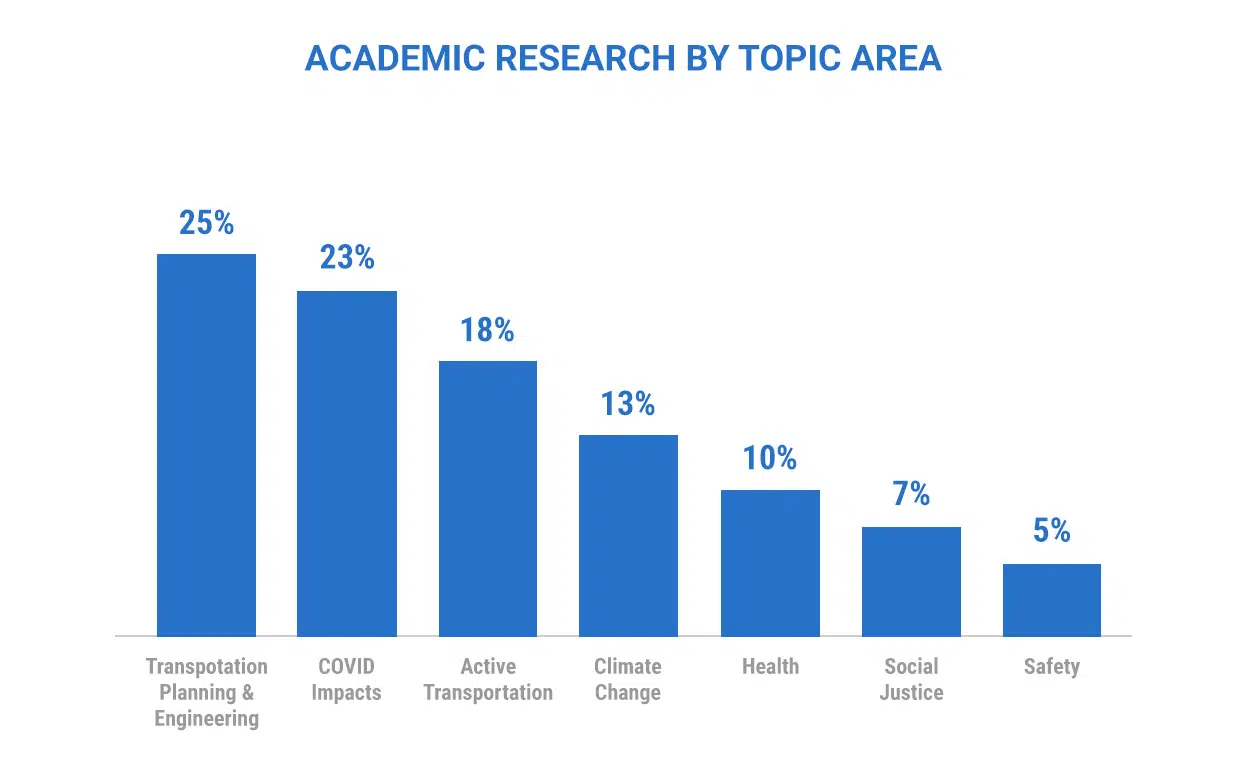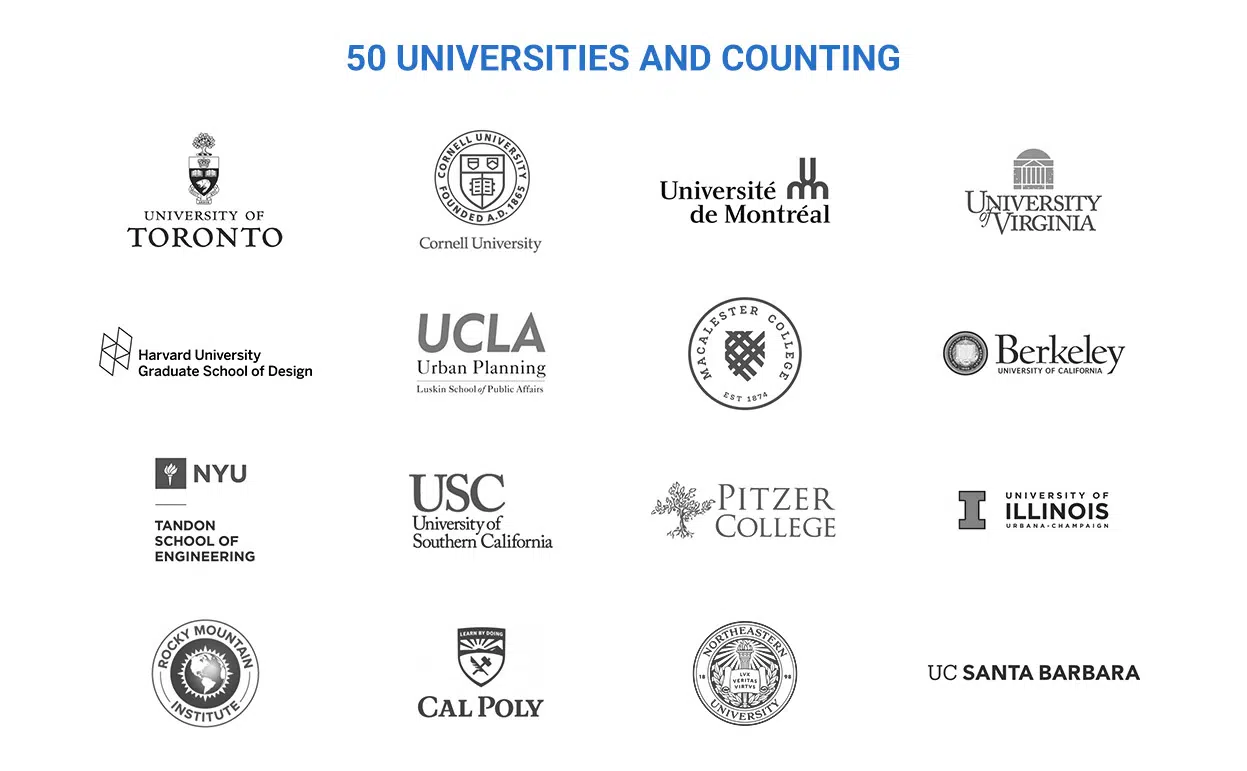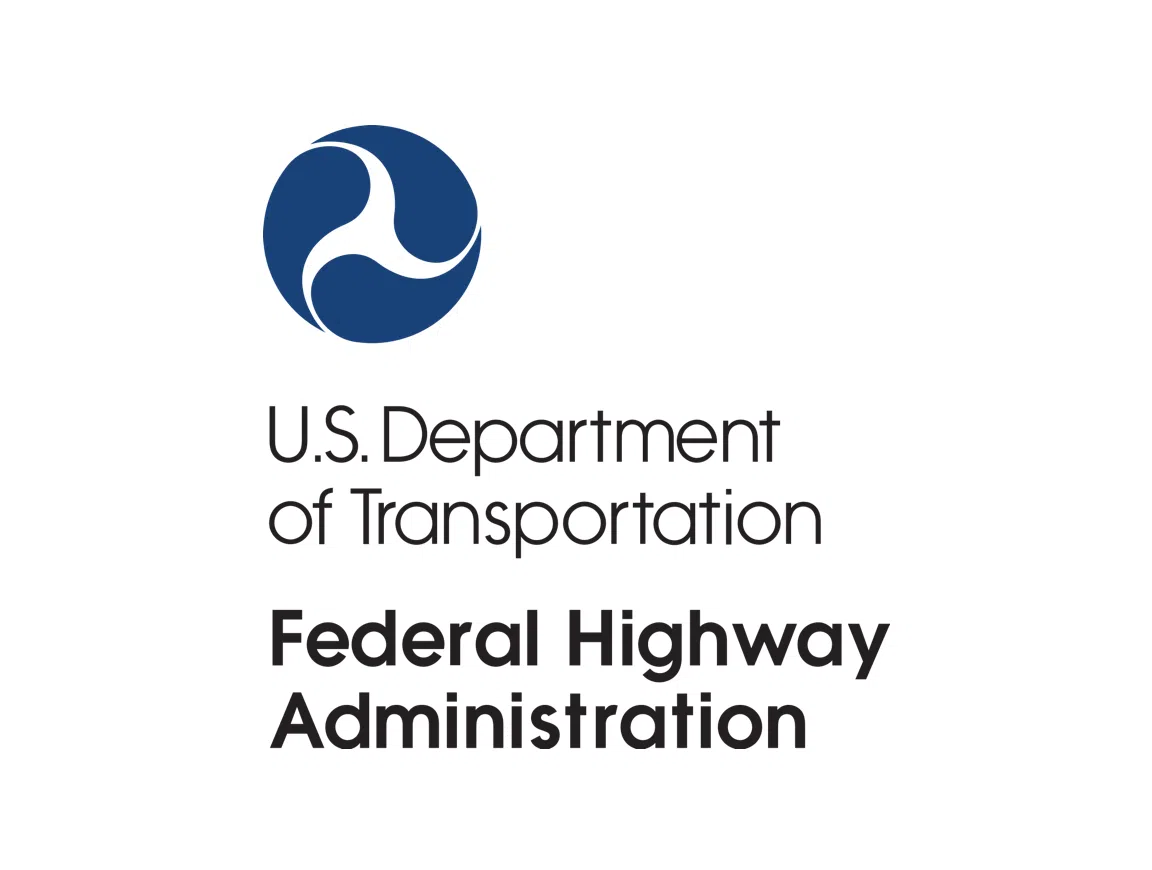StreetLight’s academic research program has three goals:
- Help train future transportation experts in using big data.
- Fulfill the StreetLight mission by allowing academic and non-profit researchers to explore climate change, health, and social equity.
- Make room for innovation and inspiration from the research community.
We offer budget-conscious licenses to students, professors, and researchers for teaching and research.
We can’t meet the “new New Deal’s” equitable, sustainable transportation goals until we “grade” our progress. Therefore we created the Impact Studies Fellows program to promote a data-driven understanding of the impact of infrastructure and policy decisions on greenhouse gas emissions and social equity.
Our Metrics support a wide range of research topics


Current Collaborations
Current Collaborations

StreetLight Data was awarded an FHWA Pooled Fund grant for “Exploring Non-Traditional Methods to Obtain Vehicle Volume and Class Data,” with 16 states participating. We partnered with the Washington State Transportation Research Center at UW, and MS2. The study will test different methods for estimating volume and class data, as well as share guidelines for validation practices. For more about this study, results of which will be published in mid-2021, see this page.
StreetLight Data is collaborating with the National Renewable Energy Lab to further the development of their Mobility Energy Productivity Metric — a new way of balancing the energy impact of multi-modal transportation options with accessibility, affordability, and travel time. Building on previous work in accessibility, the team was awarded a Technology Commercialization Fund grant, with in-kind cost share from StreetLight. This study is on-going and agencies interested in learning more may contact us

Featured Academic Research
Ensuring equity in public spaces
StreetLight gave free metrics to a team at Macalester College studying who has access to and uses public space. This knowledge informs subsequent efforts to understand how public spaces function to include and exclude people, and enhance efforts to build inclusive public spaces in diverse settings.
Unequal impacts of traffic on pregnancy
Exposure to traffic during pregnancy has been linked to adverse health outcomes including preterm birth, a primary predictor of infant mortality. African American women and other women of color are at increased risk. Researchers at the University of California, UCLA and UCSF campuses are using free traffic metrics provided by StreetLight Data to better understand the risks of traffic-related air pollution to pregnant women and their babies, and the extent to which traffic may contribute to inequalities in adverse birth outcomes.
Testimonials

“There are a lot of traffic pattern changes that occur during floods, and they are not necessarily a similar pattern. Localized impact on traffic is far greater than a citywide impact on traffic during floods, even in heavy storm situations.”
Shdraddha Praharaj, PhD Candidate

“Insights derived from StreetLight align with our hypothesis that certain areas of the city see more traffic than others, and provide additional granular metrics that we can join with data from other [public] sources.”
Charles Liu, Masters Student

“If fleets serve a high percentage of travel demand and the fleet is operated efficiently, deadheading becomes small, such that shared automated vehicle fleets could provide a high level of service at very low cost, even in more rural areas.”
Gorden Bauer, PhD Student
Representative Research
If you wrote or know of a published paper we haven’t included please email academic@streetlightdata.com to share it.
